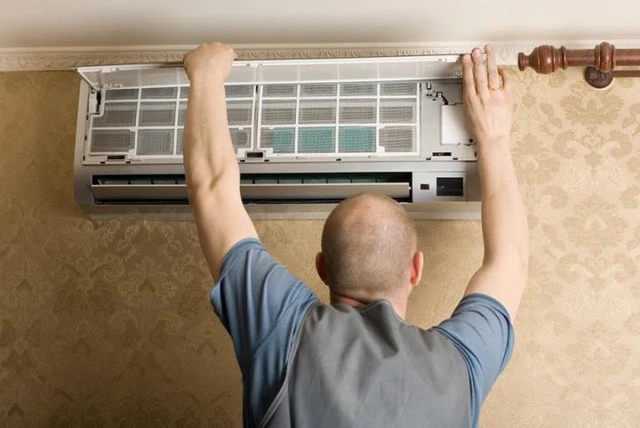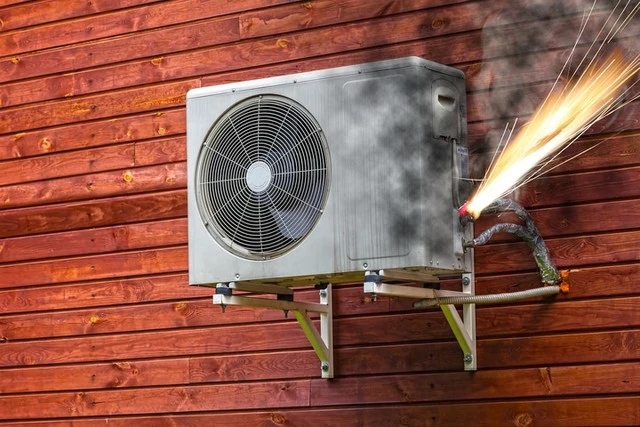Is Buying a Used Air Conditioner Worth It to Save Money?
In the scorching heat that intensifies each year, air conditioners have become an indispensable appliance in many homes, providing respite from the discomfort of sweltering spaces.
However, air conditioners are also expensive purchases, and there are countless other necessities competing for your budget. It’s no wonder that many consider buying used air conditioners as a cost-saving measure, since they are often only required for a few hot months rather than year-round operation.
But is purchasing a pre-owned air conditioner truly a bargain?
A quick search through used appliance stores or online marketplaces reveals that used air conditioners can be found for as low as $200 to $500, covering a range of capacities from low to high. These models are typically 5 to 7 years old, have higher capacities, and are often from well-known brands or are imported units.
For comparison, a new air conditioner with a capacity of 9000 BTU currently retails for around $400 to $1000, while larger capacity models range from $1000 to $2000. Clearly, used air conditioners come at a significant discount.
However, there are certain pros and cons to consider when opting for used appliances.

What are the disadvantages of buying a used air conditioner?
The most obvious downside to purchasing a pre-owned air conditioner is that it may not last as long or perform as well as a new unit.
The unit may have technical issues, a dirty filter, reduced cooling capacity, etc., which could lead to future breakdowns, leaving you with the need to buy another air conditioner within a matter of months. When calculating the cost-benefit ratio, this could end up costing you more than if you had simply purchased a new air conditioner from the outset.
Another disadvantage of buying a used air conditioner is that they are generally less efficient than newer models. While the average lifespan of an air conditioner is roughly 15 to 20 years, many start to decline in performance after just 10 years.
This can result in higher electricity bills as the unit has to work harder and use more energy to maintain a cool temperature, leading to fluctuations in airflow and an inability to maintain consistent temperatures.
Finally, a used air conditioner likely won’t come with a warranty, meaning you will be responsible for any repair or replacement costs.
While you may be able to find a used air conditioner that is still under warranty or has a “verbal warranty” from the seller, there is obviously no guarantee.
Is Buying a Used Air Conditioner Worth the Savings?
Despite the pros and cons of buying a used air conditioner, it ultimately may not be worth the purchase.
If you are simply looking for a temporary solution, a used air conditioner could be a reasonable option. Or, if you only need one for a secondary room or infrequently used area, a used air conditioner could be a viable choice.
According to the New York Times, it’s important to keep in mind not to buy anything older than 10 years.
Older air conditioners – specifically those manufactured before 2010 – use hydrochlorofluorocarbon (HCFC) refrigerants like HCFC-22 (also known as R-22). These refrigerants are environmentally unfriendly and contribute to the greenhouse effect.

If you can’t tell how old the air conditioner is or the seller doesn’t know when they bought it, make sure it doesn’t use R-22. The type of refrigerant used will be clearly labeled on the unit. Most new air conditioners on the market today use R32 refrigerant.
Avoid units with discolored control panels. If the control panel on the front of the air conditioner is yellowed or has an odd discoloration, you could be bringing something toxic into your home.
Remember, you will be breathing the air that this thing is blowing out. That includes any fumes, dust, or mold that may be trapped inside.
Air conditioners are tough machines built to withstand a lot. But if there are any cracks or dents in the chassis, it could have been knocked around pretty hard. This can sometimes affect the cooling ability of the internals.
Used air conditioners often come with a host of problems that the untrained eye won’t be able to see. While you can certainly check for cosmetic issues like scratches, you won’t be able to see any defects or deficiencies deep within the unit until after you buy it.
These defects could be something as simple as loose mechanical components, like the fan or blower motor, or they could be more serious issues like frayed wiring or a failing compressor. Other issues could involve faulty capacitors.
While the original owner may have sold the unit in good faith, dealing with unseen mechanical failures after it’s been hauled, transported, and installed can be a major headache.
Another unforeseen problem with defective parts is that if the air conditioner is old enough, the manufacturer may no longer stock replacement parts. Imagine the headaches of endlessly searching the internet and making futile phone calls trying to find compatible parts for an outdated machine.
Ultimately, buying a used air conditioner is likely not worth it, especially considering that the cost of air conditioners today is significantly less than it used to be. A used 9000 BTU air conditioner costs around $200 to $300, while a new unit currently costs only $400 to $500. Clearly, the difference in cost is not worth the potential risks down the road.
Source: Law and Life Magazine






























